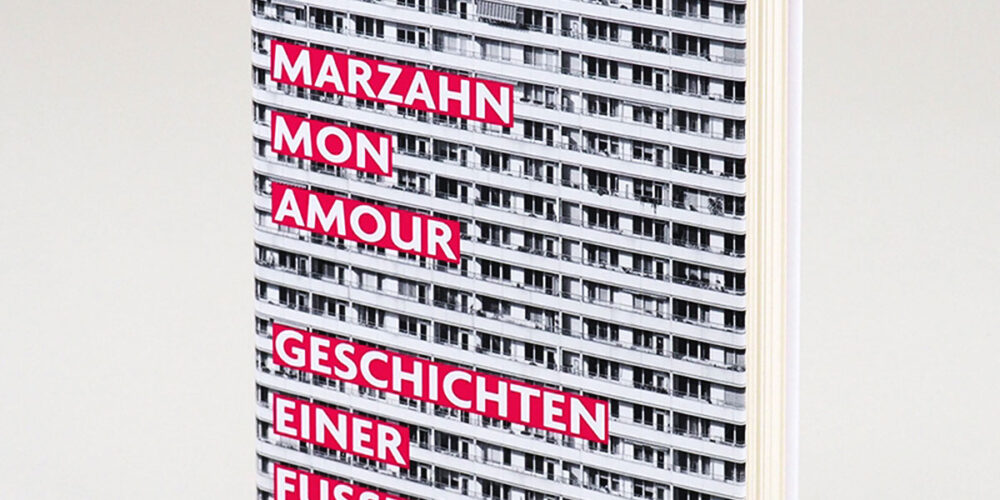The shortlist for the annual International Dublin Literary Award for 2023 was published in late March. Among the six books on the list is a book by the East German writer Katja Oskamp, Marzahn, Mon Amour. The title stands out for East Berliners in particular, who immediately recognise Marzahn as the GDR’s once most ambitious and largest social housing programme, providing homes for over 270, 000 people.
Marzahn, Mon Amour was nominated by Stadtbüchereien Düsseldorf, Germany. The book surprisingly made it past the establishment publishers who generally discourage voices from the ordinary people about ordinary lives, and especially if they write about not so cool places. In addition, Oskamp’s book is about ordinary East Berliners, most of them pensioners, most of them women, ageing. In all these respects, Oskamp’s book had the cards stacked against it. And yet, not only was it published, and nominated for the Dublin Literary Award by a West German library, it incredibly made it on to the shortlist.
The book is firmly rooted in a GDR literary tradition – that of truly valuing the ordinary, everyday lives of people, inseparably linked to the world of work. Perhaps the most famous example in GDR literature is Maxi Wander’s Guten Morgen du Schöne (1977, Good Morning, Beautiful). It presents interviews with nineteen women aged between sixteen and ninety-two, talking about their lives. A similarly themed book of interviews with men by Christine Müller, Männer-Protokolle (1985), was later followed by Christa Wolf’s diary style publication Ein Tag im Jahr (2003, One Day a Year), where she records her own reflections on the same date every year, 27 September, 1960-2000.
The same interest in the everyday lives of ordinary people is reflected in the documentary by GDR filmmakers Winfried and Barbara Junge, whose epic series Die Kinder von Golzow (The Children of Golzow) began in 1961 and continued until 2007. It follows the lives of eighteen people born between 1953 and 1955. This grassroots emphasis was directly linked to the GDR’s state cultural policy of making the arts directly relevant to the vast majority of the working population and to encourage them to participate in the arts.
The preservation of memory, as a fightback to the complete rewriting of history that took place after the annexation of the GDR by West Germany, became more important than ever. In contrast to some novels that bowed to the diktat of this New Order post 1990, the documentary style recording of ordinary people’s ordinary lives that has claimed its own space. A splendid example of this is Katrin Rohnstock’s interview based book Mein letzter Arbeitstag: Abgewickelt nach 89/90. Ostdeutsche Lebensläufe (2014, My last day at work: wound up after 89/90. East German life stories). This book presents the memories of GDR working people and their lives. A younger generation is currently scrutinising the actual life experience in the GDR, into which they were born, where childhood memories dominate, but they are old enough to rely on the truth of their memories and at the same time to reflect on post-unification life.
Katja Oskamp’s novel Marzahn, mon Amour is a book about ageing, among other things, the search to give meaning to life at its every stage, and some new beginnings. Aged forty-four, the author-narrator retrains as a chiropodist. She finds a job in a friend’s salon in Marzahn. This book is about her customers and her colleagues. Due to the area’s demographics, and the chiropodist service, most (but not all) of her customers are elderly. Work is an important theme in the book, not only the narrator’s own working life, but also the past jobs of her clients: “I look after the feet of some former bricklayers, butchers, and nurses. There’s also a woman who worked in electronics, one who bred cattle and another who was a petrol pump attendant.”
And so the reader encounters these people and their stories. To some these stories may not seem very spectacular, others will recognise in them the stuff of life. This becomes all the more authentic, as she relates some conversations in the Berlin dialect. This is in itself a hallmark of East Berlin, where speaking in Dialekt is still more widespread across the social strata. East Germans frequently observe that to speak the way the ordinary people speak, is frowned upon the higher up the social ladder one ascends in the New Germany. And yet many persist — a small gesture of protest.
Oskamp writes with understanding and compassion, preserving and enacting the sense of solidarity and community that was a feature of GDR society. The characters in the book all support each other through life and through the difficulties of growing older and old. Their recognition of commonality supersedes any sense of superiority of status or money. Partly memoir and partly collective history, each person’s story, beginning with their feet, is individual and related with respect, frequently communicating the client’s sense of humour. Taken as a whole, the individual portraits depict a community of equals. Herein lies a specifically East German collective memory.
So perhaps it should not be so surprising at all that a German public library, catering as such libraries frequently do, for the not so well-to-do readers, has chosen Marzahn Mon Amour as their nomination for the International Dublin Literary Award. The prize for this, or one of the other five books on the shortlist, will be announced by the Lord Mayor of Dublin, Caroline Conroy, on Thursday 25th May 2023, as part of the city’s International Literature Festival.






